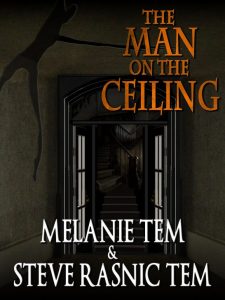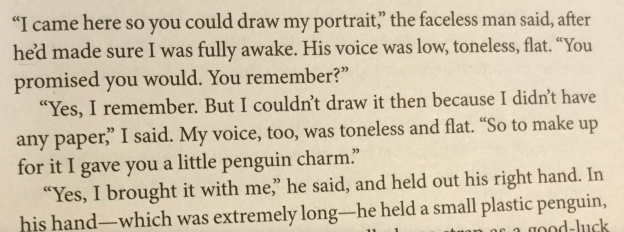The Nostalgia That Never Was – Rhys Hughes

Gloomy Seahorse Press 2019
My previous reviews of Rhys Hughes: https://dflewisreviews.wordpress.com/494-2/
If I review this book, my thoughts will appear in the comment stream below…

www.nemonymous.com
Des Lewis - GESTALT REAL-TIME BOOK REVIEWS
A FEARLESS FAITH IN FICTION — THE PASSION OF THE READING MOMENT CRYSTALLISED — Empirical literary critiques from 2008 as based on purchased books.





No, which is the Last Balcony, is the question.
Some amazing stuff here about would-be ordinal men, including Noah who “will use his monstrous hand as a rudder to steer the vessel in the weeks to come, to shake hands with the currents in the deeps.”
“It takes guts to have a face like that.”
(Humbaba)
“…I’ll return to the wheel in my workshop and caress those other curves I know so well instead,…”
Cf what Noah did with his hand above.
(Rhys Hughes stuff seems the optimal place for someone called after a sham hat!)
“The earliest named writer in history was a woman.”
Has ‘he’ in her name, though, it seems. From Ur to Glug. And did not someone with another part of her name write Black Beauty?
Possibly the only work in the whole maze of literature where ‘knot’ is used as a pun for ‘not’. Notstalgia in utero?
A moving picture of wind towards a bespoke picture in my mind of this author’s attrition of centuries with his word games.
“Ironically, out of the two guys, Theseus loved her more.”
Gaye or gay?
“I just lurk by the doorway and give a ball of yarn to any hero who comes along. And a kick in the pants to send him on his way through that portal of doom.”
All of us are both constructive and destructive, to some extent, to others and to the self, not only from an author’s words but also a perceived way of living?
An ironic prophetic mention of today’s POTUS starting the Third World War?
The joke does depend on knowledge that AJAX was a toilet cleaner in UK when I was younger.
Followed by the relative sizes of Trojan Horses and gates.
Although starting life in 1947, it was worldwide and still exists today!
Tim Berners-Lee has had two wives so far, so he is not the single person we seek who changed humanity most?
Solomon’s wisdom stretched to chopping a single person into two on a breeze block, I believe.
Writing fiction is a form of acting, corpsing with lacunae, pretending you are the established founder, but only being chance finder, or muser, not actual muse, the one in front but not behind it all, and it’s really someone else thus pretending to be you. The … Fallacy.
Lao Tzu
“A journey of a thousand miles begins with a single step. But if you are a millipede, a single step begins with a thousand feet.”
Confucius
“I had my last wisdom tooth pulled today and now I no longer know what a journey of a thousand miles begins with…“
Siddhartha
=============================
Trump:
HIT VERY FAST AND VERY HARD culturally important targets in Iran.
I have never wondered before why one is cheered UP, and not simply cheered.
I think X is the only letter — other than, of course, the circular argument of O — that is the same up, down and sideways in either its lower or upper case forms.
ZENO
I love these two sections in particular as I love Zeno’s Paradox. I often mention it in my preternatural reviews of books. I want to kiss it. Then go further.
“, the icing broke and she fell through into the filling.”
The icing as ceiling, because cakes don’t have roofs. Xanthippe, Socrates’ feisty wife, as he preferred a wife to be. Frosty, too, I guess.
Perhaps this is the counterintuitive start of an evolution of pining nostalgia for the puckish Rhys Hughes we once knew and loved, rather than this Rhys Hughes the staid educationalist?
Ah, there are many interesting different theories teeming in this book, some from its readers, but mainly from its author. Mark or Mint each Pole of Thought.
“ …by definition any day on which he was born must be Christmas Day. Christmas Day was named after him.“
That figures. And we now seem to enter a realm of important Christian figures. Starting with its Parthenogenetic Mother
“After forty days in the desert without eating, Satan”
Satan brought Jesus to an impossible mountain from the peak of which could be seen all the Kingdoms of the world. Jesus worshipped Satan in return. Ends justifying means. Or vice versa? A telling parable of religious philosophy. I wonder if it will ever be reprinted whereby the whole world can read it.
Hew off a hand, but whose hand will hew off whose hand? If it’s your own hand, choose your hand for hewing carefully. Much about religion is obliquely encapsulated here, even if the author was just an innocent party in opening such implications. Sometimes it takes a rehew to recognise something even the author had missed.
Splinter or plank in an eye discussed, and subsequent removal. There was a famous 1967 film called The Plank that teemed with named comedians of the era, a sort of silent film comedy. Eyes were thus important with which to watch it without subtitles.
“She was an empress who became known for her humility, wisdom and diligence, the wife of Emperor Shun of Han, chosen to be his consort at a young age, together with her aunt, and he took it in turns romping with them.”
They called it “analing”? Whatever, Liang Na did not like whatever it was being done to her, I gather,
“He knew because he wasn’t there.”
That is the most potentially perfect sentence ever written. The fact it is an arguably generic ‘he’ enhances its perfectibility.
All I can do here is to quote from Whiter Shade of Pale by Procol Harum, a song that was very significant in my life as a young man in 1967.
“One of sixteen vestal virgins”
A telling and serious (If brainstorming) tête-à-tête with Hypatia by the author.
To read and understand this, you need to invent not the stepladder but two new brains as appendages for increased storage on each side of the head. But also to continue acting as flaps for the inner ears.
Atikah bint Murrah
Bodhidharma
Khosrovidukht
Thor
Leif Ericson
Hassan-i-Sabbah
Giraldus Cambrensis
Genghis Marco Polo
Ockham
Mansa Musa
Chaucer
Zheng He
Nicolas of Cusa
Pachacuti
Gutenberg
Marlowe
Sebastiano Venier
Shakespeare
Guy Fawkes
Don Quixote
Bashō
Hakuin Ekaku
Blackbeard
Dr Johnson
Vico
Casanova
Hanway
Berkeley
Robert Clive
Frederick the Great
Lichtenberg
Épée
Hahnemann
Mungo Park
Napoleon
Marshall Ney
Mary Anning
Daguerre
Morse
Cornelius
Kierkegaard
Balzac
Stirner
Gobineau
Whitman
Darwin
Richard Dadd
Scarlett O’Hara
Richard Burton
Strauss the Younger
Edward Lear
Verne
Victor Tatin
Mendeleev
Dewey
Mrs Beeton
Mark Twain
Schiaparelli
Dostoyevsky
Sitting Bull
Remus (2)
Starley
Dr Jekyll
D’Oyly Carte
Tarzan
Ed Haley
Coubertin
Housman
Alfred Jarry
Marconi
Hiram Maxim
Steiff
Marie Curie
Beijerinck
Ramón y Cajal
Bannerman
Planck
Buddy Bolden
M.R. James
Einstein
ERB
Rodin
André Gide
Čabrinović
Paul Klee
Don Marquis
Kafka Cheiro
Lovecraft
Shafiqa Al-Qibtiyya
Karel Capek
Lang
Coco Chanel
Brecht
Django
Carter
Noel Coward
Chaliapin
Parker
Rudolph
Gandhi
Simenon
Pearl S. Buck
Hoover
Gibbons
Evelyn Waugh
Robert Johnson
Superman
Borges
Bogart
Kharms
Turing
Veronica Lake
Hans Fallada
Asimov
Jimmy Stewart
Sartre
Aslan
Yma Sumac
Dylan (1)
Amos Tutuola
Pollock
Bradbury
Hitchcock
Sturgeon
Trippe
Damon Knight
Rosalind Franklin
Charles Beaumont
Salazar
Julius Kelp
Coltrane
Heilig
Tito Puente
007
Goldfinger
Glen Campbell
Robbie-Grillet
Barthes
Dylan (2)
Patterson-Gimlin
Peter Beagle
Marvin Gaye
Buzz Aldrin
Vonnegut
Jagger
Dr White
Richard Harris
King Tubby
Papillon
Wainwright
Greer
Jeff Wayne
Brautigan
Barbara Woodhouse
Bonnie Tyler
Acker
Ligotti
Rayner
Higgs
W.G. Sebald
Mick Aston
Leonard
Meldrew
Pinker
Diana
Prince Charles
Jack Dann
Julia Roberts
Lee Child
Solnit
Elizabeth Taylor
E.L. James
Rupert Murdoch
Farage
Trump
The Reader
The Last Man
A fictionatronic wordplay of a buffer against a dwindling in the nostalgia for what is truly great in our past. You would think such nostalgia would be being bolstered more seriously or logically when everything else is sadly dwindling. The ultimate paradox. Thank goodness for the erudition that prevails in at least one last one among us.